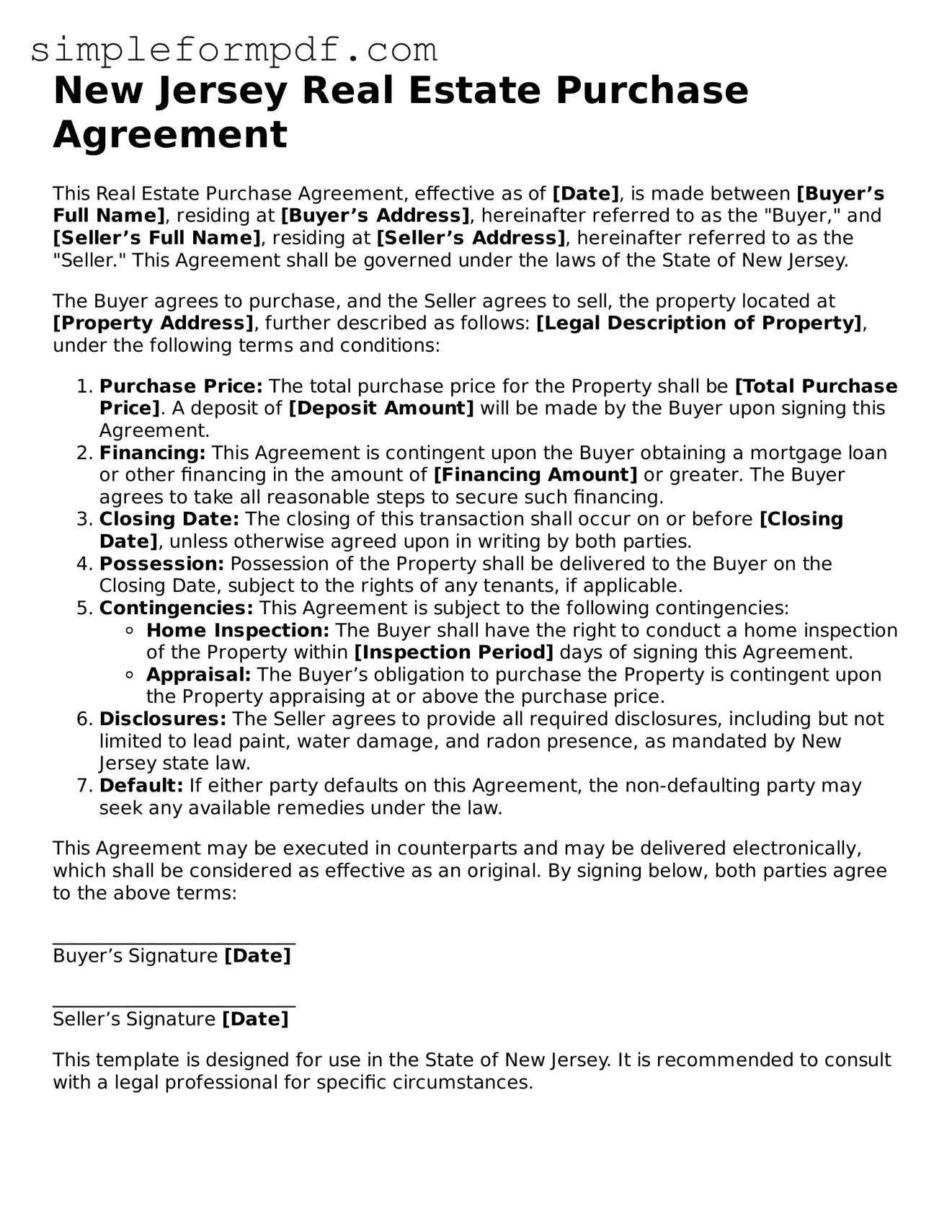New Jersey Real Estate Purchase Agreement
This Real Estate Purchase Agreement, effective as of [Date], is made between [Buyer’s Full Name], residing at [Buyer’s Address], hereinafter referred to as the "Buyer," and [Seller’s Full Name], residing at [Seller’s Address], hereinafter referred to as the "Seller." This Agreement shall be governed under the laws of the State of New Jersey.
The Buyer agrees to purchase, and the Seller agrees to sell, the property located at [Property Address], further described as follows: [Legal Description of Property], under the following terms and conditions:
- Purchase Price: The total purchase price for the Property shall be [Total Purchase Price]. A deposit of [Deposit Amount] will be made by the Buyer upon signing this Agreement.
- Financing: This Agreement is contingent upon the Buyer obtaining a mortgage loan or other financing in the amount of [Financing Amount] or greater. The Buyer agrees to take all reasonable steps to secure such financing.
- Closing Date: The closing of this transaction shall occur on or before [Closing Date], unless otherwise agreed upon in writing by both parties.
- Possession: Possession of the Property shall be delivered to the Buyer on the Closing Date, subject to the rights of any tenants, if applicable.
- Contingencies: This Agreement is subject to the following contingencies:
- Home Inspection: The Buyer shall have the right to conduct a home inspection of the Property within [Inspection Period] days of signing this Agreement.
- Appraisal: The Buyer’s obligation to purchase the Property is contingent upon the Property appraising at or above the purchase price.
- Disclosures: The Seller agrees to provide all required disclosures, including but not limited to lead paint, water damage, and radon presence, as mandated by New Jersey state law.
- Default: If either party defaults on this Agreement, the non-defaulting party may seek any available remedies under the law.
This Agreement may be executed in counterparts and may be delivered electronically, which shall be considered as effective as an original. By signing below, both parties agree to the above terms:
__________________________
Buyer’s Signature [Date]
__________________________
Seller’s Signature [Date]
This template is designed for use in the State of New Jersey. It is recommended to consult with a legal professional for specific circumstances.

